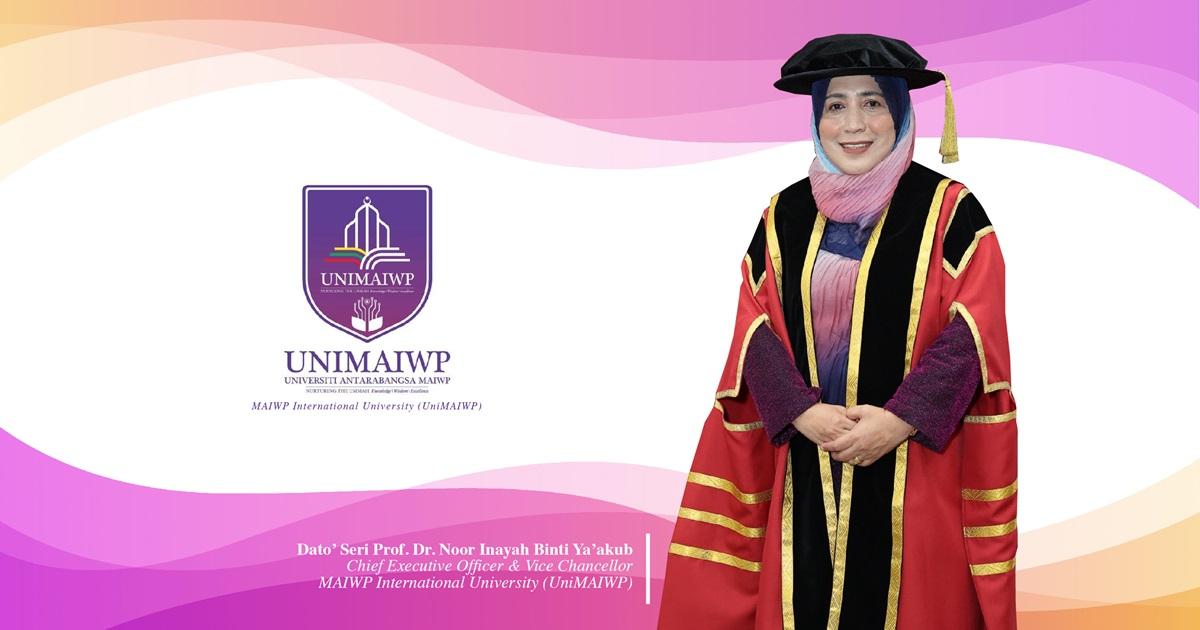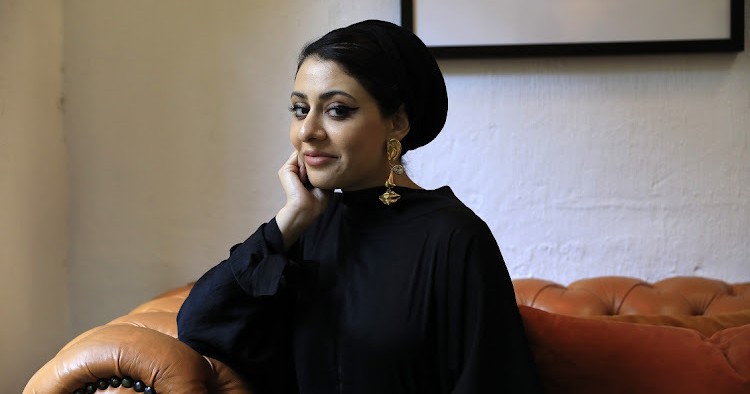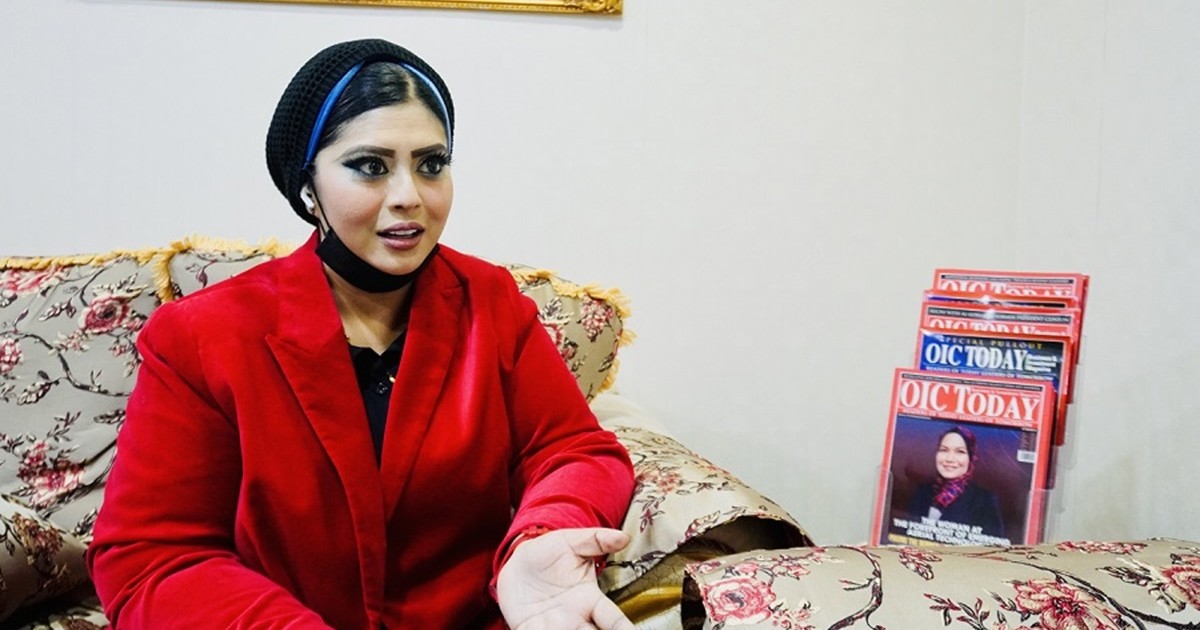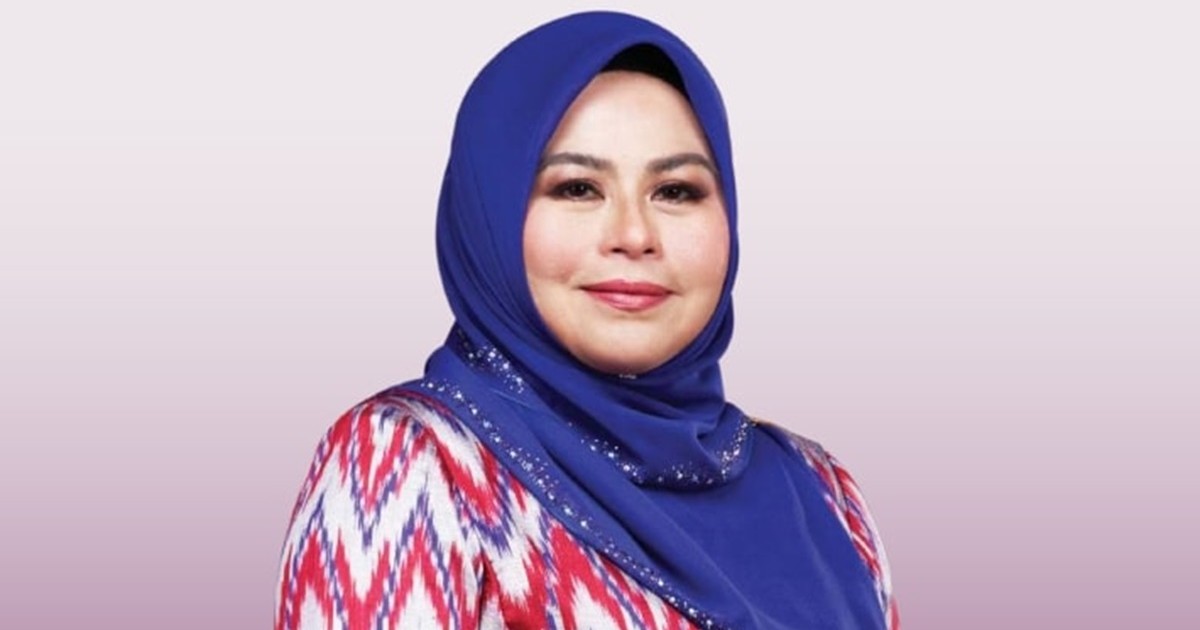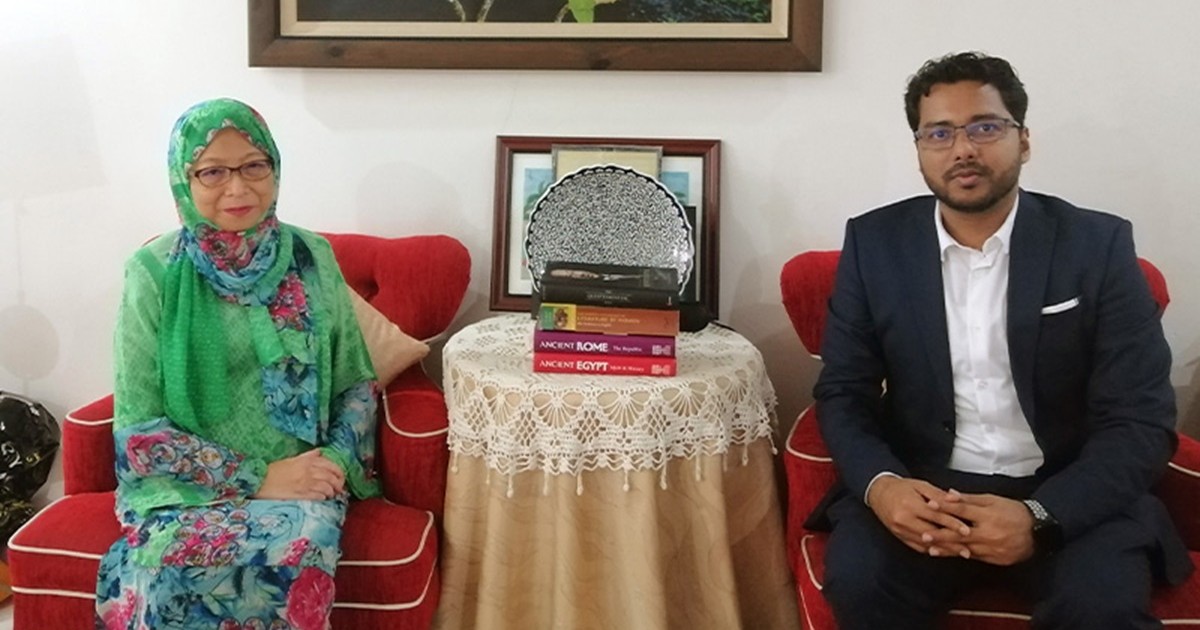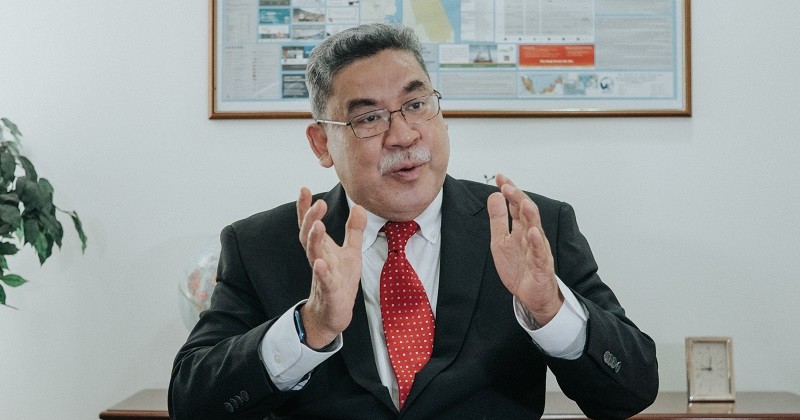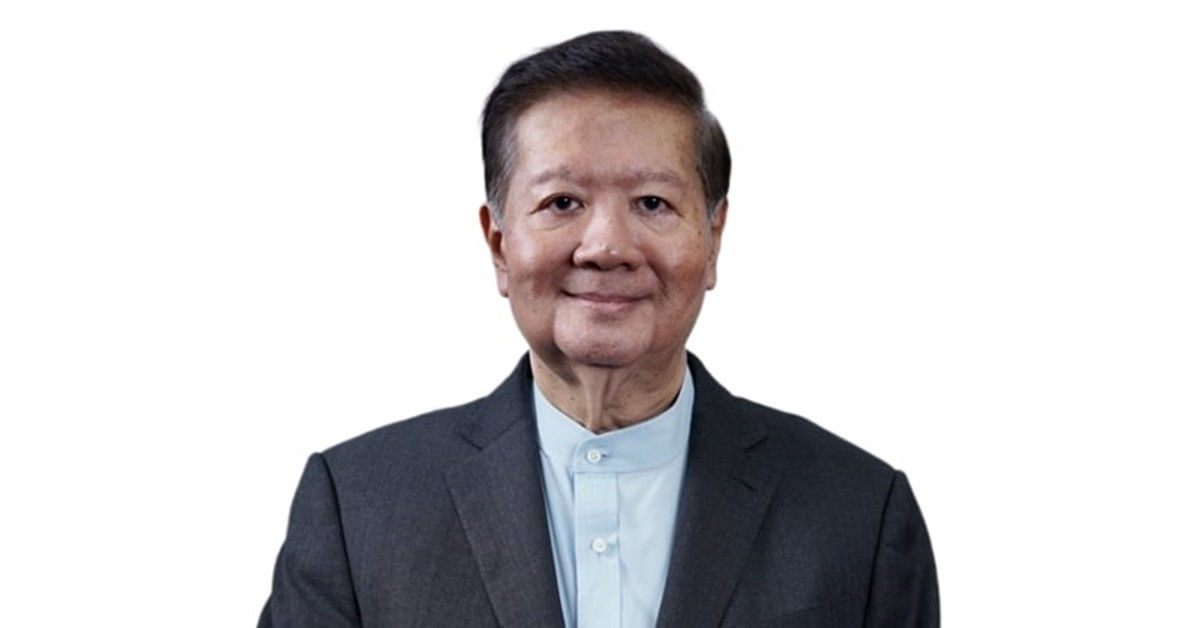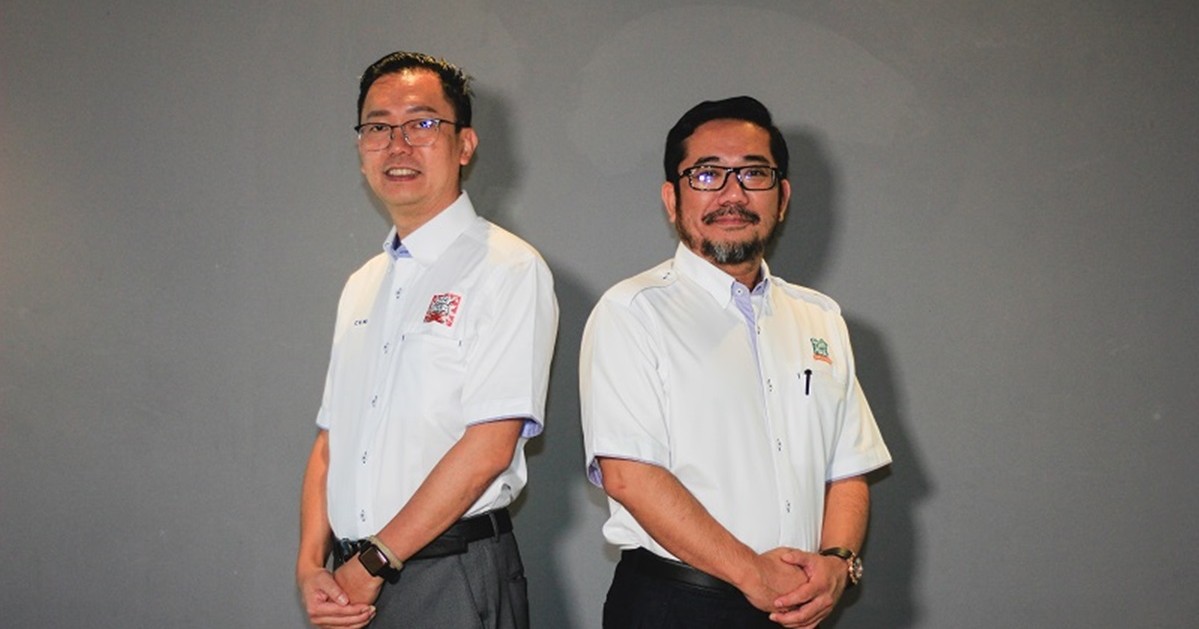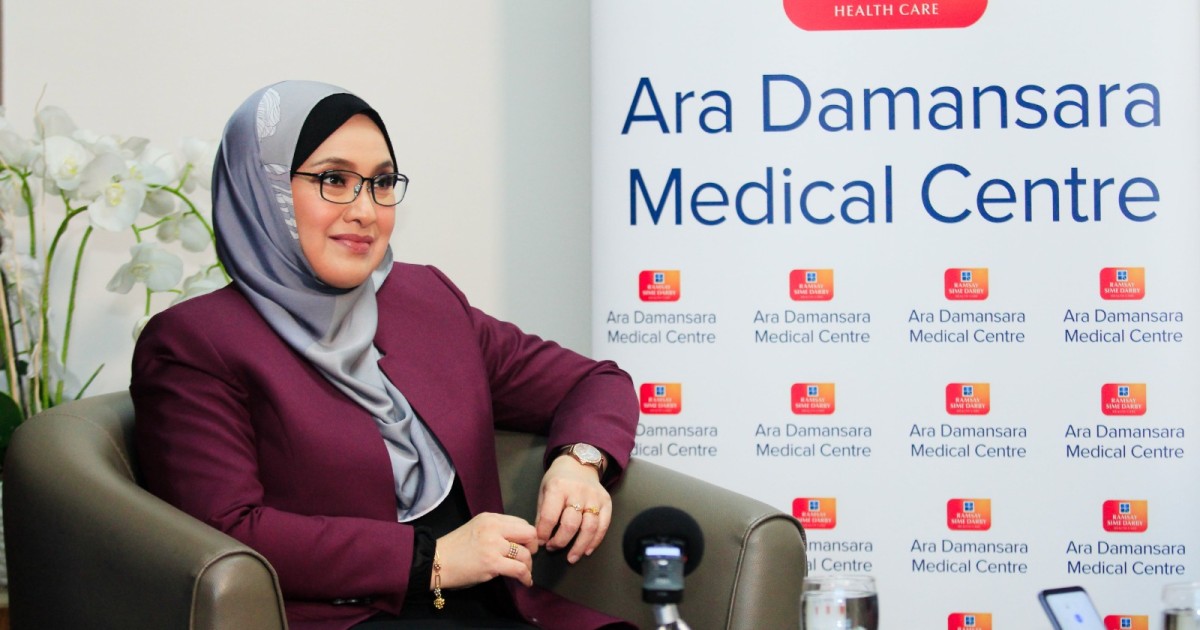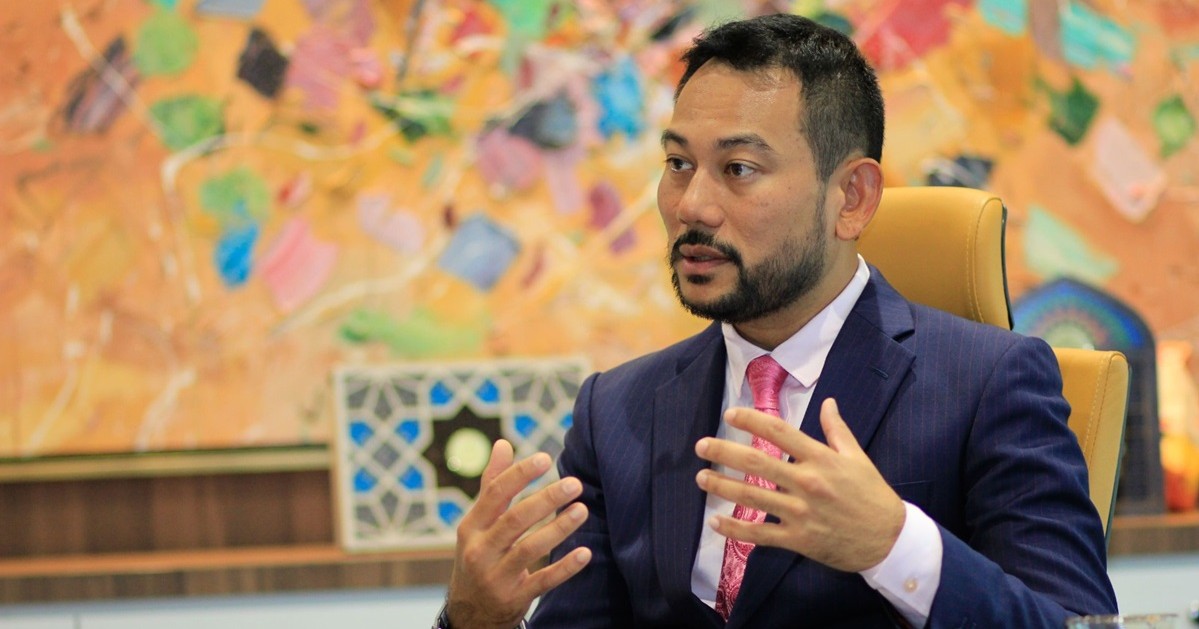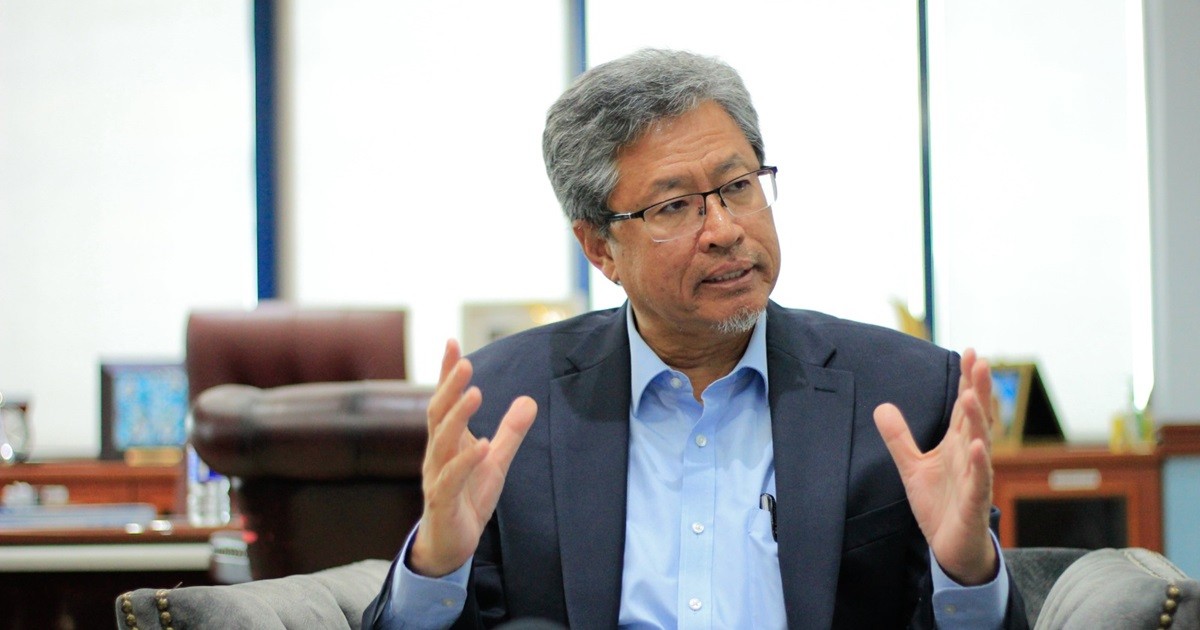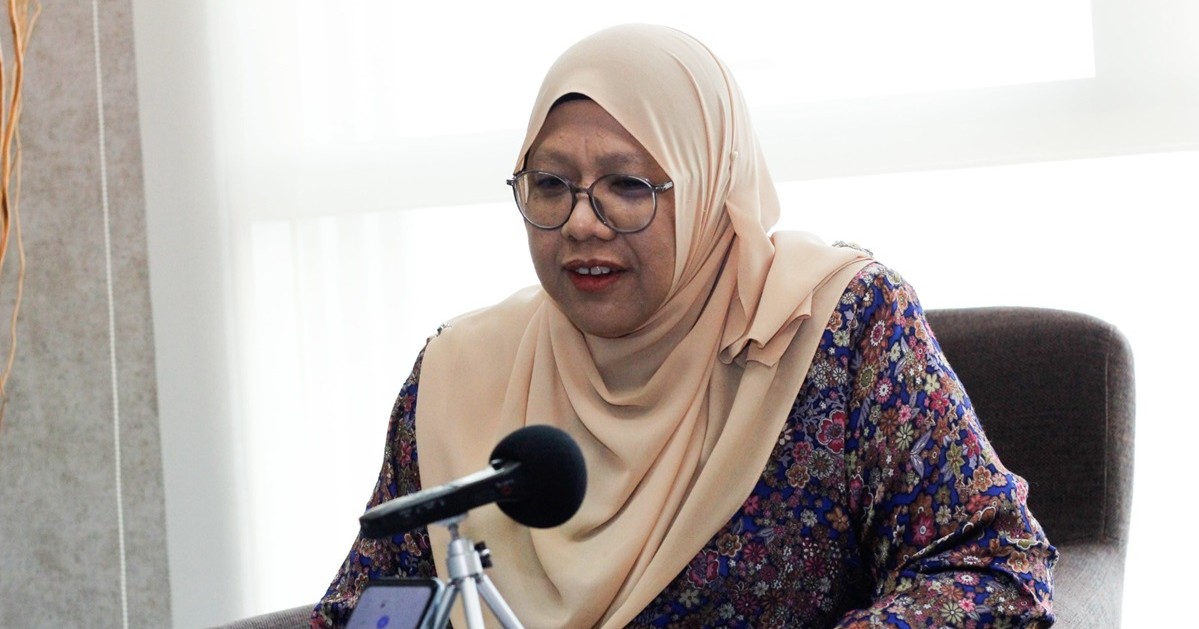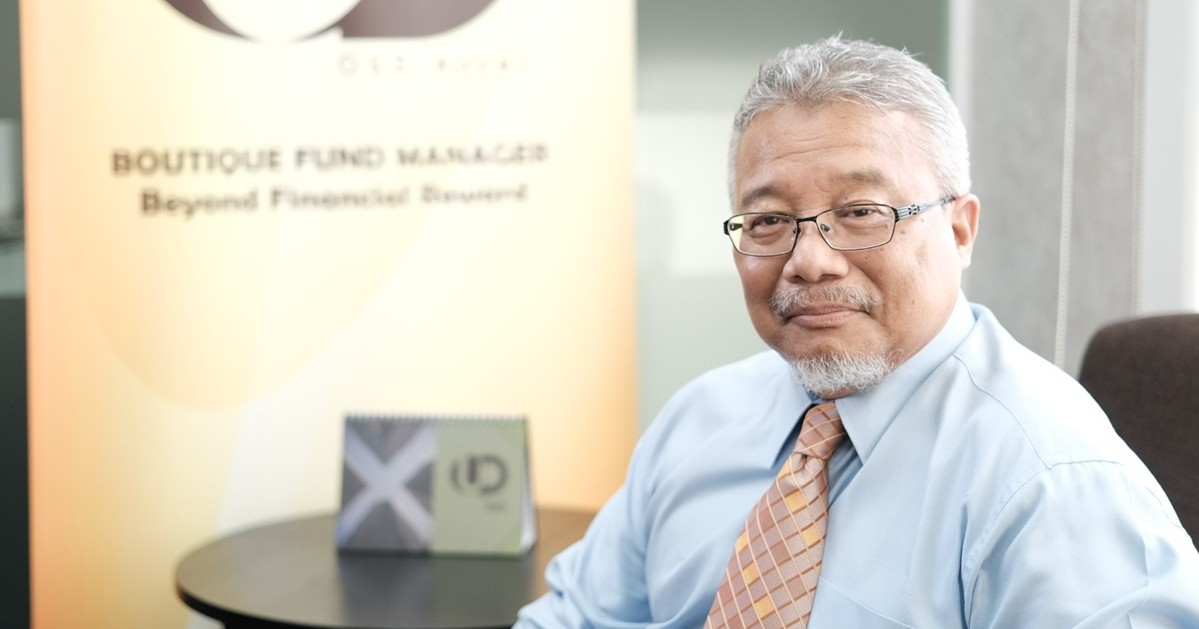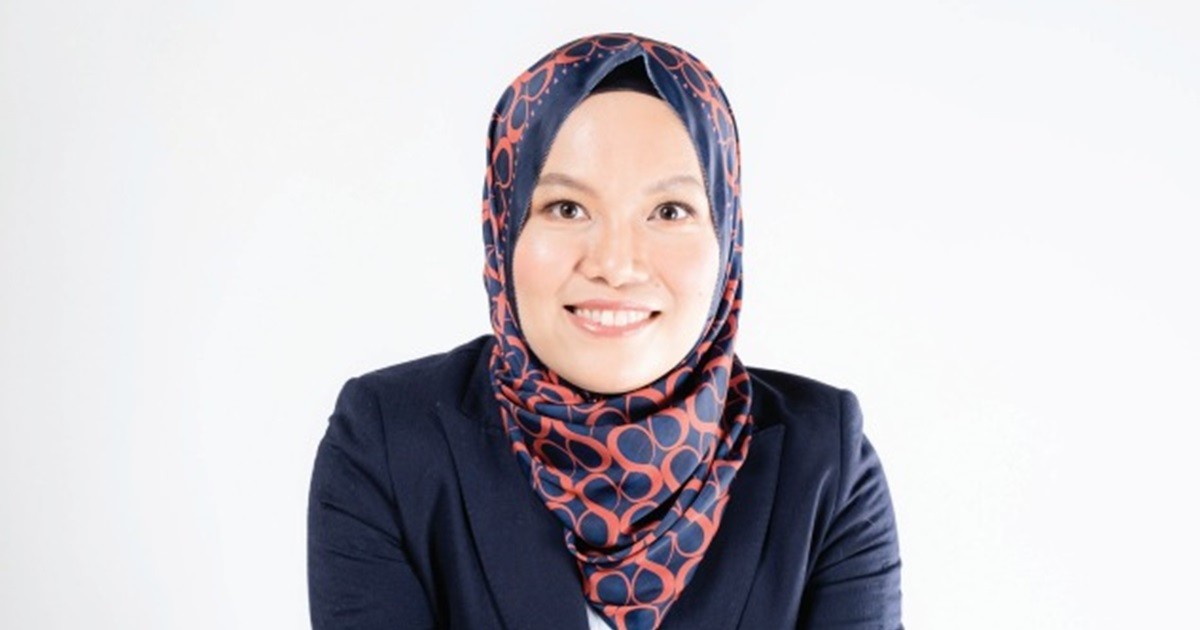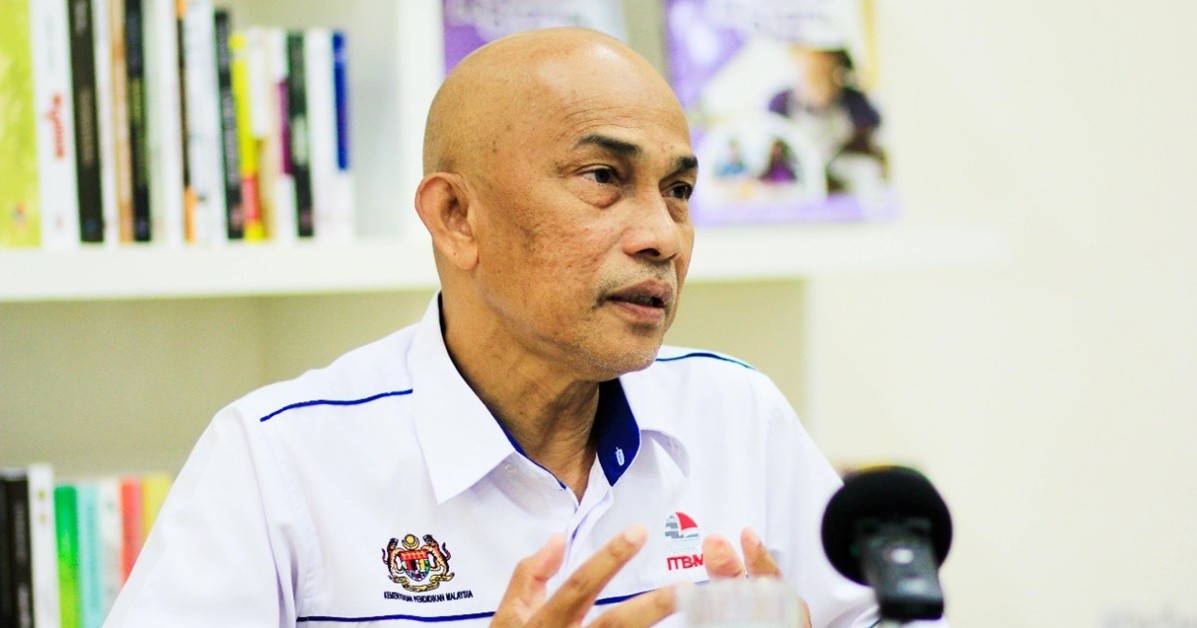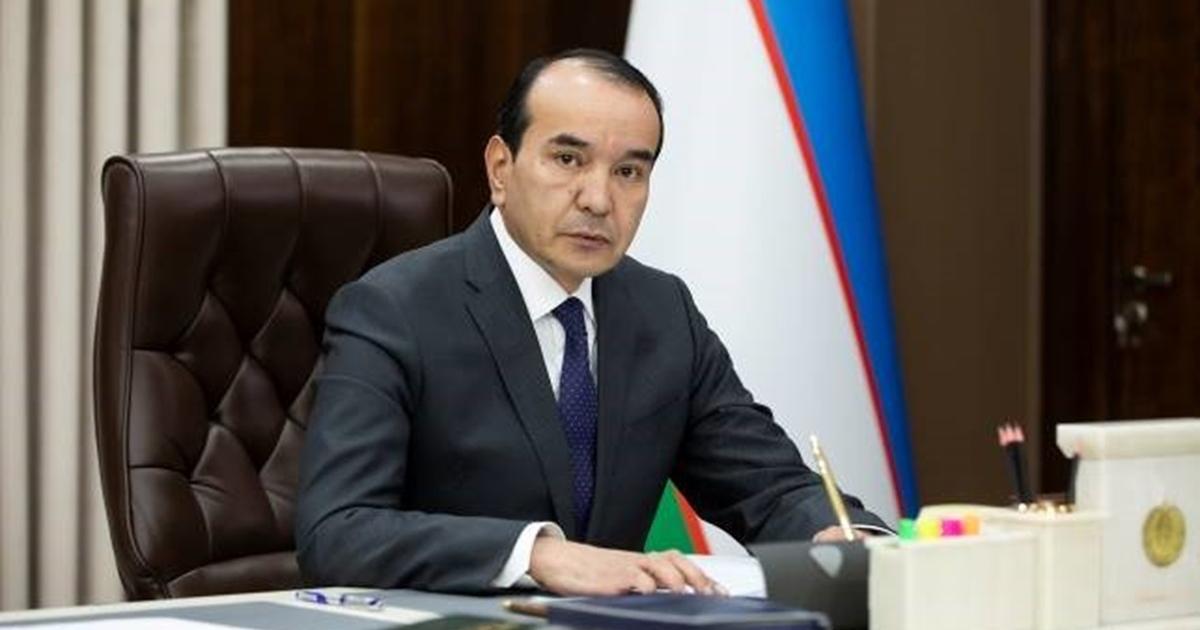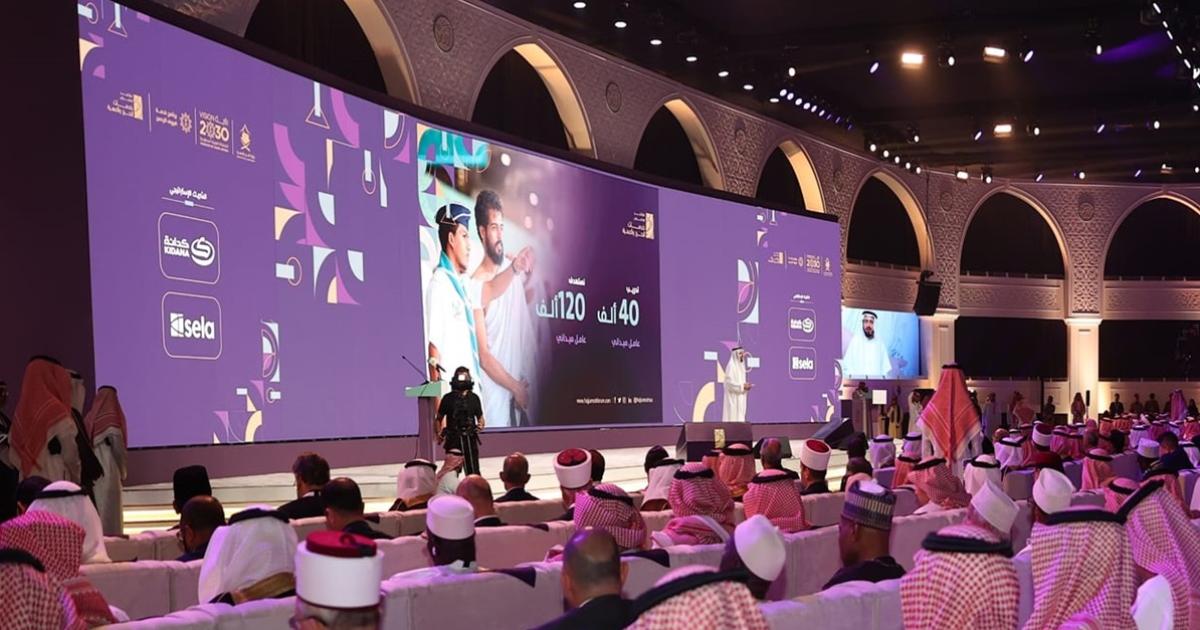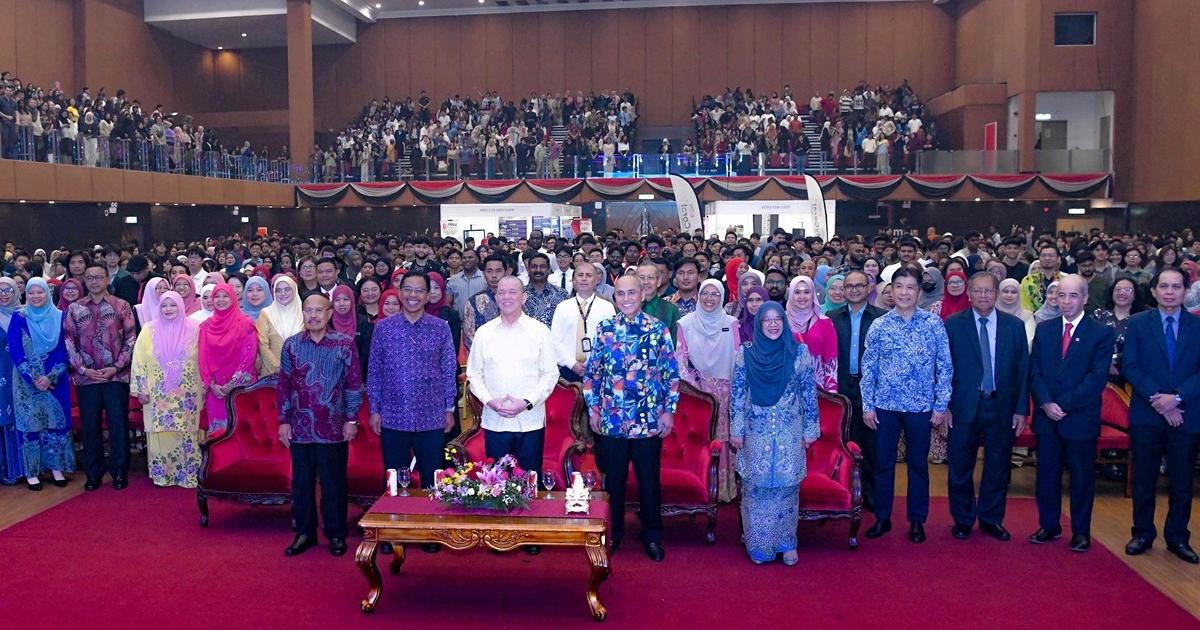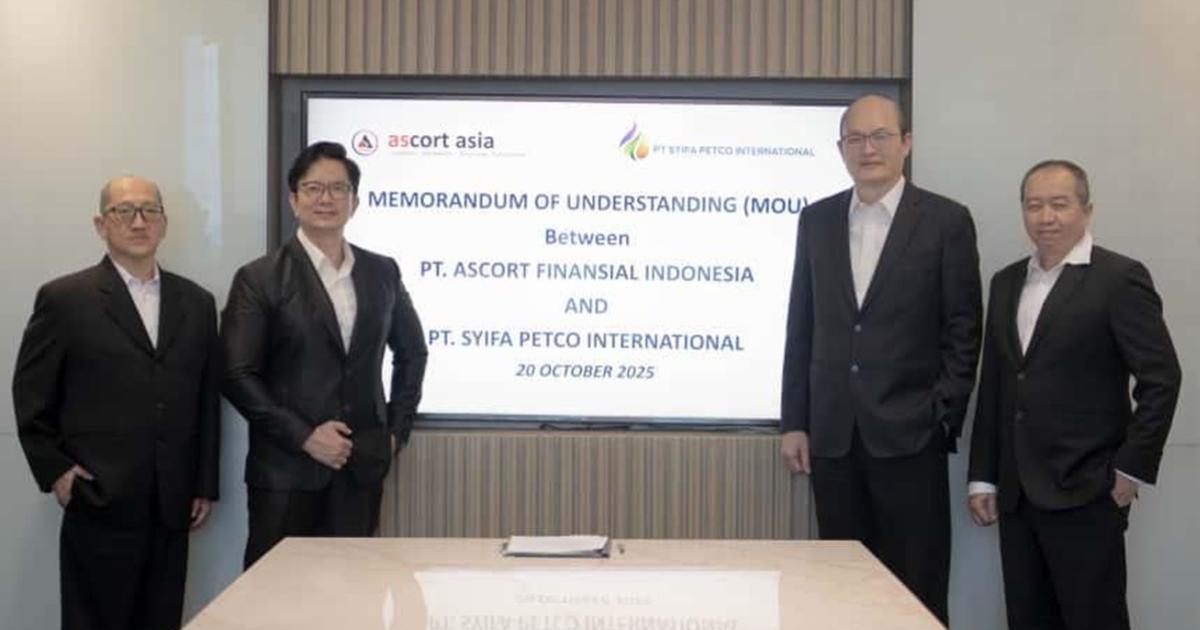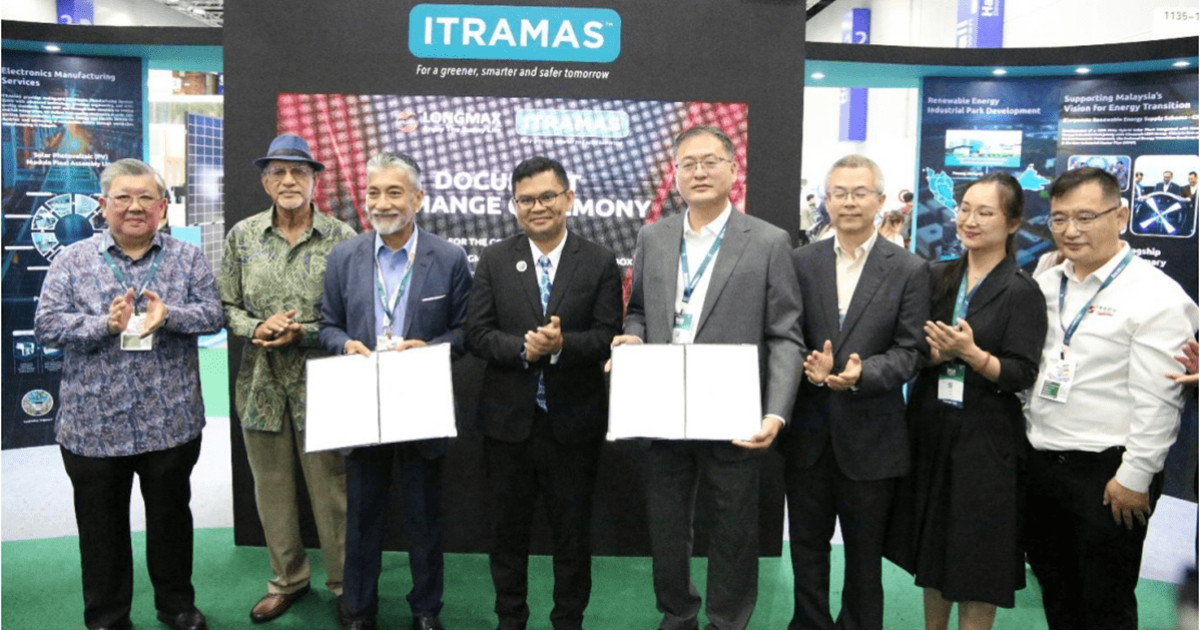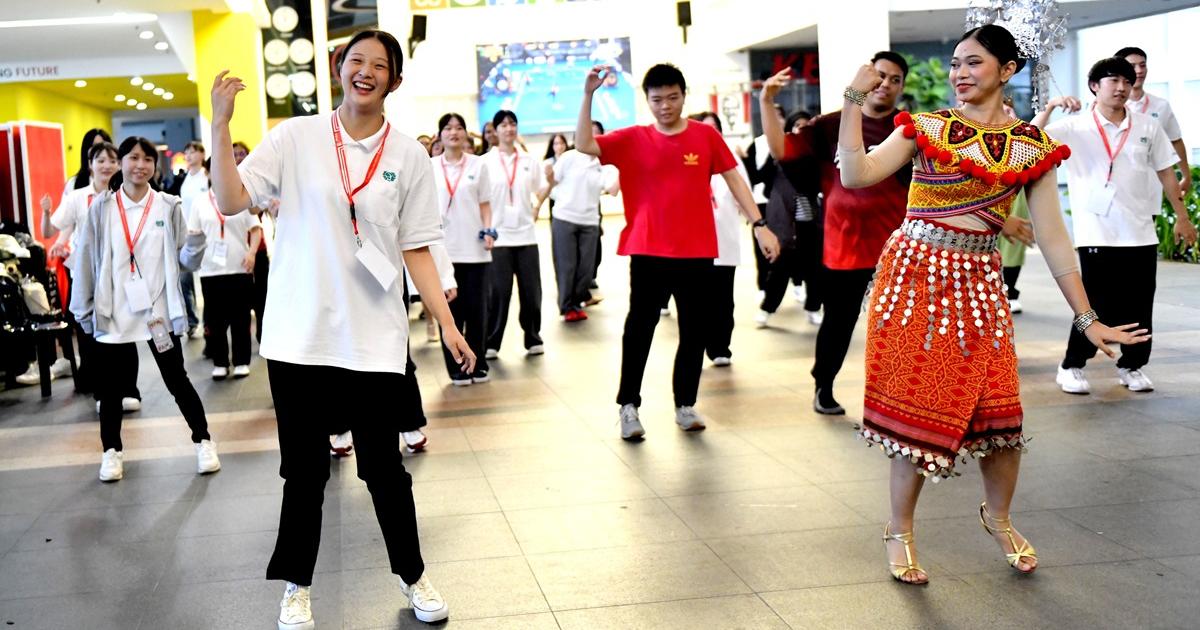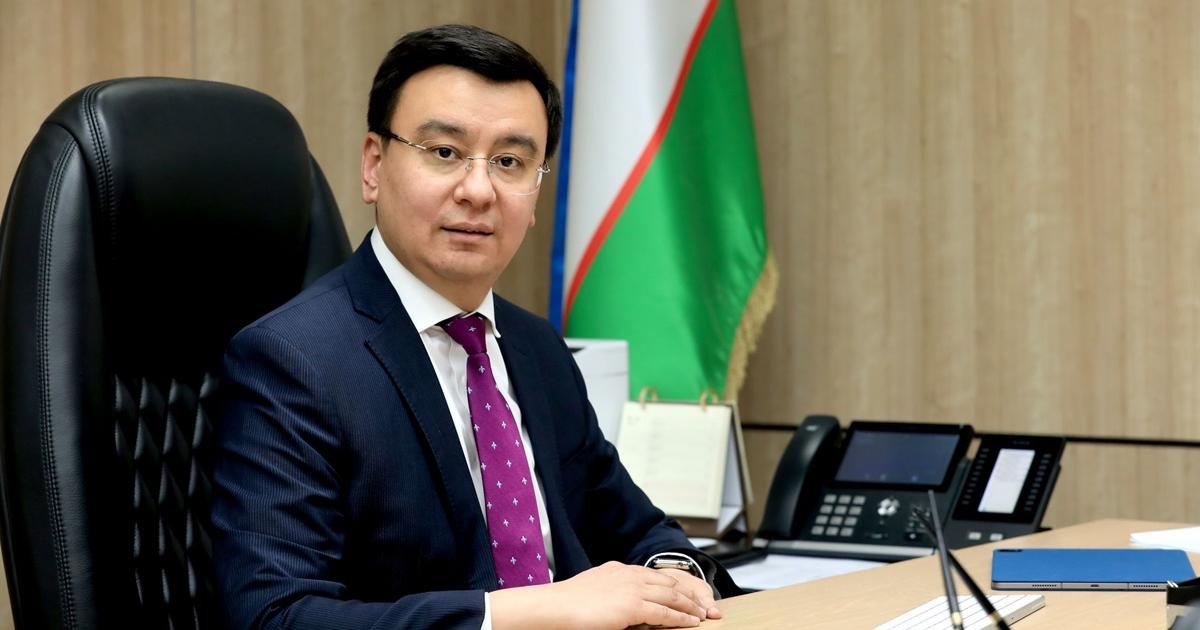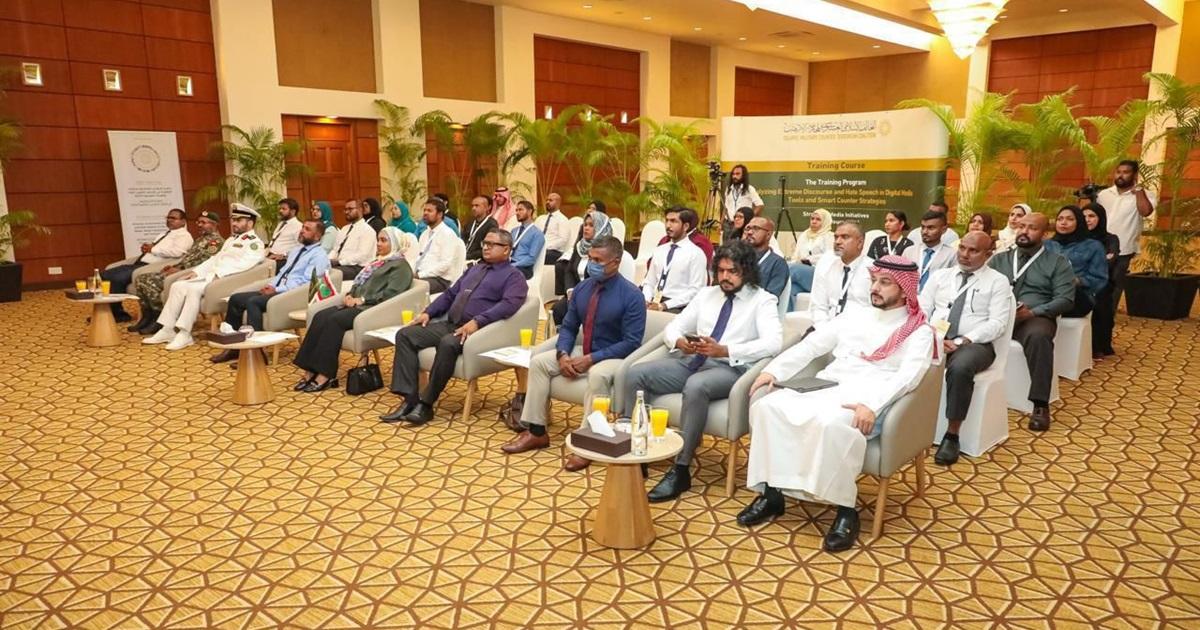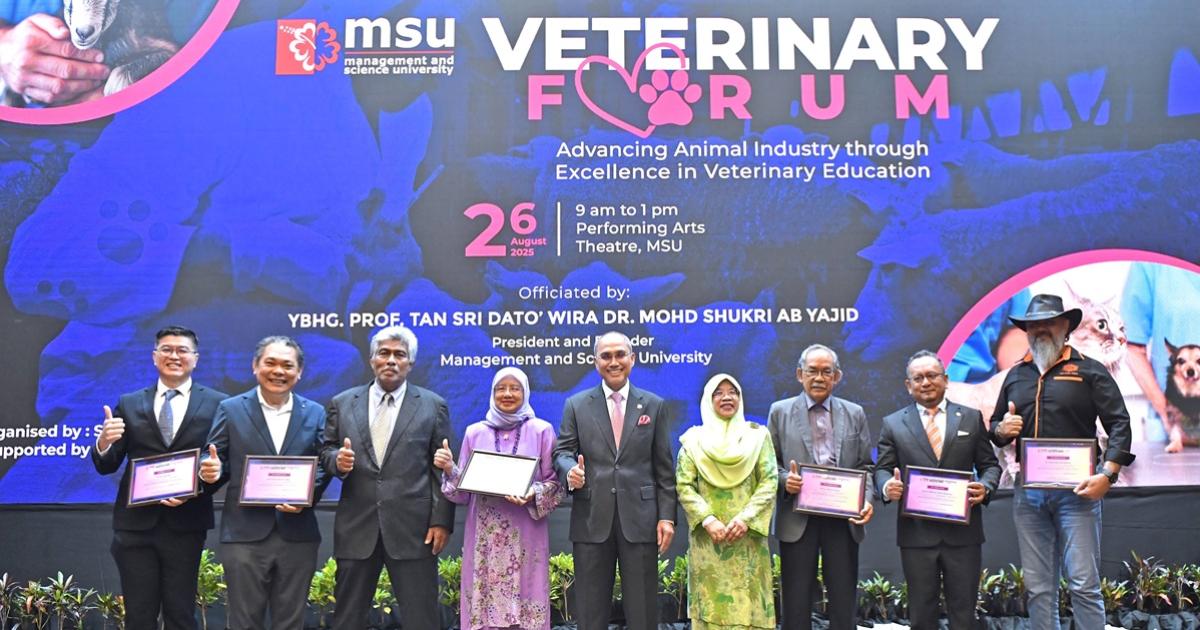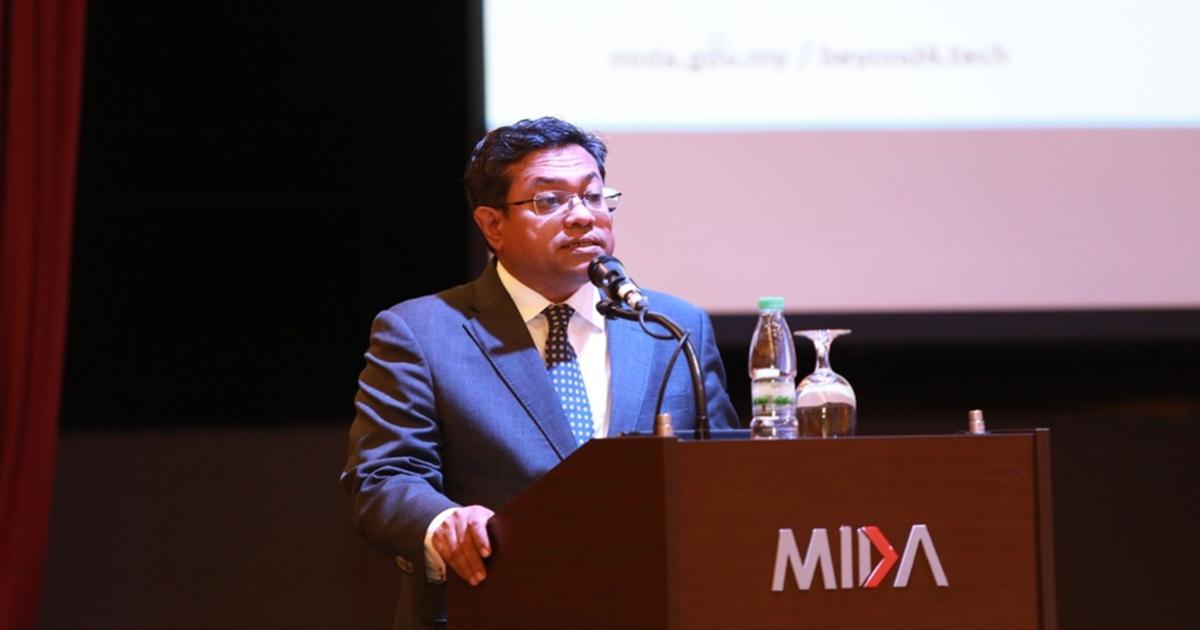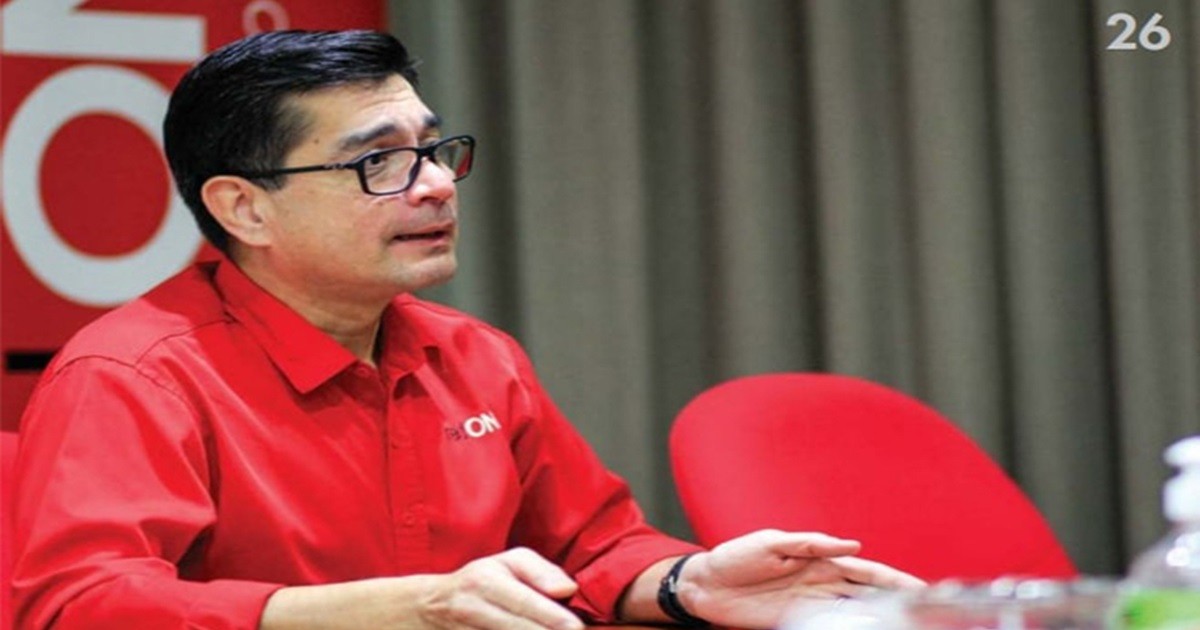
He is known as the Guru in the world of Mobile Virtual Network Operators (MVNOs). A man who has 20 years’ experience in the mobile industry, holds a Master’s degree from the University of Leeds, and a BSc in Telecommunications from Ohio University. Following a stint as a wireless industry analyst with the Yankee Group in London, focusing on mobile markets and operators in Europe, Middle East, and Africa, he came back to Malaysia in 2006 and joined Celcom and eventually became Celcom Axiata’s Chief Strategy and Business Transformation Officer, responsible for technology, market strategies and business planning.
He is none other than Farid Yunus, who is currently the Group Chief Executive Officer of redONE Network Sdn Bhd - a Mobile Virtual Network Operator (MVNO) that utilises Celcom’s network. As their dynamic CEO, he has helped drive the company’s growth and redONE subsequently became the fastest growing postpaid mobile service provider in Malaysia, winning the 2014, 2015 & 2016 Frost & Sullivan MVNO of the Year awards, and numerous other prestigious awards such as the Star Outstanding Business Awards (SOBA) and Sin Chew Business Excellence Awards.
OIC Today has the pleasure to talk with Farid Yunus the Chief Executive Officer of redONE Network Sdn Bhd, who shared a glimpse of his success in the world of MVNOs.
How would you describe your experiences so far as the CEO of redONE Network Sdn Bhd in the last 2 years and before? What do you feel is the biggest strength of your company right now?
Mr. Farid Yunus: Let me take you down memory lane with my experiences so far as the CEO of redONE. We were known previously as REDtone mobile - an MVNO riding on the Celcom network, and the only MVNO to offer postpaid services. Partnering with Celcom Axiata as our network provider in Malaysia meant redONE users get to enjoy the same ‘widest and best network coverage’ throughout the country. It was in 2006 when I joined Celcom and eventually became their Chief Strategy Officer, and Mobile Virtual Network Operators (MVNOs) were under strategy at that time. There were only a handful of MVNOs in the country then, and most of them signed up to use Celcom Axiata’s network. The five with Celcom were REDtone Mobile, Merchantrade, Tune Talk, XOX Mobile, and SMART Pinoy which was a joint venture with SMART of the Philippines. At one point, Malaysia had something like eighteen MVNOs, but most have since shut down. Celcom struggled with SMART Pinoy, and Merchantrade had a good run going after the foreign workers, but then the USP was cheap IDD rates. When the telcos started dropping the IDD rates Merchantrade sort of tapered off. So now Celcom has only three MVNOs left, namely XOX, Tune Talk, and redONE.
Back then, REDtone was geared towards the SME market but things were not going that well. When I was Head of Enterprise Services, in Celcom, we had a very successful reseller, so I approached them to take over REDtone Mobile and in 2012 after a discussion with its Founder Datuk Wei Chuan Beng, the sale went through. I was then seconded to REDtone Mobile by Celcom for 4 years to ensure a smooth trajectory and in 2014 we changed the name of REDtone Mobile to redONE Network.
The greatest strength of our company today is the fact that despite the very competitive market here, we have grown to have 1.2 million subscribers and this is partly because we have a very strong sales network. We have approximately 15,000 agents and their modus operandi is to sign up family and friends, or they rent a space in retail shops, and sell to strangers. Yes, whilst the world is currently turning towards online digital marketing, the situation here is a bit different. To me, peer-topeer selling is far more powerful than a Facebook advertisement as this personal selling has yielded the best results for us. For example, try asking your friends how often they purchase something via an online Ad and nine out of ten will probably say never. On the other hand, if you balik kampung, and your cousin sidles up to you asking about the cost of your phone bill and if it is on the high side from another telco, it is easier to convince him to get one of our postpaid plans for as low as RM8 a month. With a little bit of cajoling, we can sign the person at least for a second line. I must say we are a bit old fashioned in some ways, but this methodology works for us.
The strength of our company is also shown in our agency recruitment methodology. We have master agencies who recruit the agents. Way back between 2012-2016, we did things differently from other telcos and that attributed to our success. Firstly, we gave a recurring percentage of the bill to the agent perpetually in the sense that if the customer pays the bill, the agent will get a passive income. That’s a carrot for them and so the agent will follow through with the customer for the bill payment. Although they get an upfront incentive when they sign up a customer, the agent still gets this percentage forever. This is the unique selling proposition that we have, and we employ this in all our markets. Secondly, we also allow individuals to become our agents. Today, if you wanted to become a Telco postpaid dealer, you need to have a physical shop, and an investment of a few hundred thousand ringgit to set it up and even come up with a deposit. However, at redONE, the entry cost is very low and we provide the training and the tools, all the merchandise and voila! You are already a redONE agent. That’s how easy it is.
We also have 100 Premier Shops nationwide, and they are solely redONE shops. These shops are where individual sales advisors are recruited and trained, and they also act as stockists for, SIM cards, devices and marketing materials. We also have our neighbourhood centres, and these shops are multibrand, but we ensure that these centres must brand their premises as redONE to at least 50% and we do not restrict them from selling products and services from other brands. We have different levels of dealer partnerships available to cater to different market demands.
A lot of people become individual agents, but once they’ve exhausted their address book, and their friends and family, they’re too shy to sell to strangers, and then they become inactive. So, it’s a constant process of recruitment. If our agents were active at some point and have a good, healthy passive income, they will still receive the income even if they have stopped doing our business. We’ve even had situations where when the agents pass away, we continue paying their families.
Tell us more about the achievements of redONE in the last 10 years. Are there any significant milestones that you would want to share with us?
Mr. Farid Yunus: Well, I was very proud that we were the first telco in the country in 2014 to go completely paperless. Into my second year as the CEO, we gave all our dealers, a tablet, and a smart card reader. We were compliant with the SKMM rules in ensuring the BNM Know-Your-Customer (KYC) identity verification process was undertaken. Having done that our agents could be sitting in a mamak stall and be able to register customers on the spot. They did not have to go back to any shop to sign the forms in triplicate. With this, our agents can sell our services anytime and anywhere. This is an innovative achievement that we were very proud of.
The other notable milestone was when we introduced our own internal e-wallet system. Our agents have a virtual wallet,and they will put money into the wallet. When a customer pays their bill, our agents collect the cash, and the amount is automatically deducted by redONE from their personal e-wallet. When redONE pays out commissions we will put it back into the e-wallet so that the agents can roll the money or choose to cash out to their bank account. We do it this way as we had a lot of problems with cash in transit previously and manually trying to reconcile payments.
The biggest milestone will be the achievement of being in business for 10 years and we will be celebrating our tenth anniversary in 2022. We are proud to have launched redONE in Singapore and Thailand. We launched redONE Thailand in May 2021 in the middle of a pandemic and without having met the CEO or senior management. That’s a great achievement for us as the hardest part in setting up an MVNO business is working with the local telco to get the best wholesale deal and integrating our systems into their infrastructure. Our vision ultimately is to have a single SIM for ASEAN. Even today, if you sign up to a redONE - Singapore SIM card, say you have 25GB of data bundled in your subscription you can use the data in Malaysia with no roaming charges.
Globally every business was impacted during the Covid-19 Pandemic. How did you handle any uphill battles that your company faced over the last 2 years? Did you embark on a pivot during that time?
Mr. Farid Yunus: I think every company has had to do things differently. We are an essential service and being in that category we were allowed to move around and come to the office. The impact for us was on the sales as agents normally do recruitment of customers by setting up booths in supermarkets and in the malls, or they’ll meet you at your home. We saw sales drop when the agents could not travel around. We therefore had to turn to digital means of communications. For instance, digital training sessions for agents were carried out, we conducted workshops teaching them to market the online way. We also introduced digital onboarding. In short, customers now can just take a selfie and a picture of their identity card and start enjoying our services as a subscriber.
In Celcom, they have another company called Yoodo which is 100% digital with no agents at all. Customers will just download the app, do the KYC themselves, and a SIM card will be sent to them, or they can use an e-SIM. We then introduced a similar initiative with a difference. All our agents have a unique QR code. Say, for example, if you as a customer see a Facebook posting by me as a redONE agent about a latest deal, and you’re interested, you can PM me, and I will provide advice and then send you my QR code. The customer then scans the QR code and can do the onboarding themselves, but that registration will still be attributed to that agent, and they still get the incentives. By going digital, it’s a bit of a hybrid model and we certainly are not disintermediating our agents. Another thing that I’m proud of is that even when people could not work, our agents were still getting an income from us. For a fact we pay out nearly RM100 million a year in commissions. The promising news is that even though our sales were impacted during the 2020 lockdown, the outlook for 2021 has been better and I can safely say our revenue will be higher this year.
Could you tell us of a time where you faced a very challenging situation in your area of business? How did you manage to overcome the situation?
Mr. Farid Yunus: Well, I can say that every day is a challenge, but the biggest source of anxiety are the backend systems - the IT side of things, as it’s not within my control. Say for example, if there is a network failure on the part of the telco, there’s nothing, I can do about it except complain. Sometimes they can be localized failures, maybe a single site or only a handful of sites. The customers will be completely cut off and we may lose them as they move to a competitor very quickly.
Celcom Alhamdulillah has not had a major network outage for a few years now, but we may experience a few states being down for a few hours. When it comes to crisis management, my style is complete transparency. We try to compensate those who are affected, we give them free data oncethe network is back, or a waiver on their bills. We have been lucky so far and have managed difficult situations without much undue stress.
The redONE brand was launched in Singapore, and Thailand in the last couple of years and you have plans to expand to other ASEAN countries to become the largest MVNO service provider in the region by 2022. How are your plans progressing towards achieving this goal of going ASEAN?
Mr. Farid Yunus: Well, pandemics really put a drag on expansion as we cannot travel. However, we can do so now and as mentioned earlier I was very happy that we managed to launch redONE Thailand, in May 2021 and we now have more than 1,500 customers. Then first year is about building out the sales network and not really about customer acquisition. I must say that our agent base is growing rapidly in Thailand, and this is despite not having been there for more than two years now. We are also looking at the Philippines and Indonesia and we are keen to operate in these neighbouring countries as most of our Inter - border traffic occurs between Malaysia - Singapore, Malaysia -Thailand, Malaysia - Indonesia. These are the high traffic routes, and the proposition of free roaming will appeal to travellers.
The Deputy Minister of Communications and Multimedia has said that the 3G network coverage in the country will be shut down in stages by the end of 2021. As you are aware this is a part of the Jendela plan that aims to upgrade Malaysia’s digital communications infrastructure in preparation for 5G. Tell us:
a) When the 3G networks are phased out, what would happen to the older devices?
b) What would happen to consumers who are reluctant to switch to smart phones?
Are there any 4G feature phones with VoLTE where the telco can do a push to migrate them over?
c) Do we have a clear transition plan and is Malaysia ready for this transition by the end 2021?
Mr. Farid Yunus: To answer the first question, let me explain a bit here. 1G which started in 1979 is the first generation of cell phone technology and was essentially analog. Then they introduced 2G – the GSM standard. 2G at low frequencies has a big footprint, maybe 1 tower can cover around a 20 kilometres radius. When 3G was introduced, they go to higher frequencies 1800 to 2100, MHz, your footprint is reduced. You have higher data speeds, but you have a smaller site footprint, so you need more towers. Then when it comes to 4G, again, they go even higher to 2600 MHz, and your footprint gets even smaller. You need even more sites for 4G. Now 5G is going to require a lot more sites. The reason they are shutting down 3G is because they need to free up the airways for 5G. If you do not have a 4G phone, you could still make voice calls on the 2G network, but you will probably have bad data experience. Using WhatApp could be a possibility but watching YouTube videos would be impossible. The 3G phone would not be usable and could be kept as a keepsake. 4G phones nowadays are very affordable and they can be purchased over monthly instalments for those who are unable to afford buying smartphones with upfront payment.
With the 3G network shutdown, the voice quality will be poor and making and receiving calls will be a challenge. 4G is actually allocated for data. So, the telcos are introducing something called Voice over LTE (VoLTE) where you make voice calls over the data network. As 3G is switched off, you need VoLTE or HD Voice support to make calls on 4G networks. Consumers need not pay anything, but we do have to pay a license fee to provide VoLTE access. We hope to improve customers’ voice experience soon when Celcom has fully rolled out VoLTE.
To consumers who are reluctant to switch to smartphones, we have been working on this exercise from the middle of the year. Telcos as a rule know a lot about our users and for instance know who is still using a 2G or 3G phone and where that person is living. Our customer service team have been actively reaching out to these people informing them about the 3G shutdown and offering them options of very attractive 4G phone packages. To date we have approx. only 20,000 customers left still on the 3G network. We have also been actively broadcasting about the 3G shutdown on social media, andmessages are sent directly to the 3G customers. They are given constant reminders on the need to make the switch as soon as possible. So, is Malaysia ready for this transition? The answer is that we have to be as we have no choice in this matter, and it has been mandated that 3G needs to be shut down to make way for the launch of 5G.
You are and have been the guru in the Telco Industry for a very long time. There have been so many changes in the Telco industry in Malaysia. Give us your take of the Telco situation, what is wrong and what should be fixed?
Mr. Farid Yunus: Well, Malaysia is unique in the number of spectrum holders that we have and for a country of 30 million. I think we have eight spectrum holders which is a lot compared to three in Singapore which has a population of six million. Thailand, which has twice our population has four telcos, and the Philippines has three. Now all spectrum holders are supposed to roll out their own networks and can you imagine having eight towers in one location. Everyone has high infrastructure costs, and we must share the customer pool and so we end up charging customers more. If we have a smaller number of competitors to contend with, then the revenue pool becomes bigger, you can charge less and spend more on infrastructure. So, it’s detrimental to the consumer experience to have too many telcos. Some of the smaller spectrum holders have completely failed to deliver on their network rollout commitments.
With 5G, Malaysia has opted for a unique route, where instead of allocating spectrum to the established telcos, a third-party entity called Digital National Berhad was appointed to roll out the single 5G network for everybody. Now, in principle, it makes sense because there’s a lot of wastage and infrastructure overlap by the telcos currently. So, you build a single tower, and everyone can just share it that way. In my opinion the better way would have been to have a consortium of telcos roll out 5G, because they can leverage the existing towers, and fibre networks. Generally speaking, monopolies don’t turn out well for consumers, but I really hope to be proven wrong.
Why did you leave redONE to join Yoodo and then rejoin redONE after a couple of years? Under your leadership redONE grew as the fastest growing postpaid mobile service provider in Malaysia, winning many awards from 2012-2016? Was this move part of a plan to get you to make Yoodo a success like redONE?
Mr. Farid Yunus: Well, how it happened was that I was seconded here from 2012 to 2016 and Celcom had a very good run and we had 30 consecutive quarters of revenue and profit growth. However, they then started declining and I was asked to return to carry out a Transformation exercise. Celcom’s new Chief Executive Officer Michael Kuehnercame on board, and he bought into the idea of doing an in-house MVNO. We wanted to do a complete split from the Celcom brand and create a start-up. I suggested that the office premises should not be in Celcom but on its own and that we needed to hire people who had a digital mindset as opposed to a telco mindset. Now that’s how Yoodo was born. We built it, we put in all the technology to enable this very agile digital platform where you can design your own plan, design your own minutes and how much data you want. You can even suspend your line for a few months if you feel like it. We launched Yoodo, and I ran it for a year before I came back to redONE in 2019.
Are you planning a listing exercise for your company soon? Any time limits on this?
Mr. Farid Yunus: Well, hypothetically speaking, if we were ever to go for a public listing, it would be in Malaysia, not in Hong Kong, or NASDAQ as we are loyal to our home market.
Your vision is to be the largest MVNO in the ASEAN region. Beyond that, do you have any plans to take redONE to a global level once you have conquered the ASEAN region?
Mr. Farid Yunus: The direct selling model does not translate everywhere, though in Asia it is huge. There’s also this resource issue. Launching in a new country on a yearly basis can be very taxing on our resources as we need to have the backend infrastructure sorted out, we need to build the billing platform, the front end, the partner App, and the CRM. We do not make any money in the first two years and redONE Malaysia has had to fund the overseas operations. So, currently we are not looking at anything beyond ASEAN although I must say we’ve had invitations from Australia, Iran, and other telcos where from the speaking engagements that I’ve given about our success story, they have made requests for us to come on board to be their MVNO. So, for the moment our attention is to capture the ASEAN market first.
Tell us the core difference between redONE and your competitors. Why is the redONE product better in your opinion?
Mr. Farid Yunus: I wouldn’t say it’s better, but we are different in that no other telco has a postpaid plan starting from RM8 a month. We have about 100,000 people still using the RM8 plan as either a backup mobile line or a facility for their domestic help. We were also the first to introduce free unlimited calls to all networks. Now that was a big ‘WOW” 10 years ago as we were different in how we sell. The affordable RM8 plan can also be given to children as we let the master account holders set the credit limit to control spending as well.
Another unique thing about us is that from day one our focus was never on Metropolitan areas as you have all the big boys fighting and it is a challenge to cut through that noise. We are strong in secondary towns, like in the East Coast and Northern regions. We may not be that visible in Kuala Lumpur but in Kota Bahru, redONE is on every main street. The other proposition is that we have a telcopreneur programme. In these rural areas and secondary towns, there are fewer economic opportunities for them and so we recruit local agents to sell this essential service for extra income. We have also branched away from just providing mobile access. Today, our agents are like a one-stop centre where customers can buy insurance, sign up for credit cards, pay their utility bills or even do dropship deliveries. Ultimately, it’s all about giving our agents alternative sources of income. We typically do not keep any income from these third-party services and the commission is passed on seamlessly to the selling agent.
Anything else you would like to share with us would be most welcome.
Mr. Farid Yunus: We carry out a lot of Corporate Social Responsibility (CSR) initiatives and we have our very own Foundation called Yayasan redONE. We’ve raised funds for primary schools, and we have gone the extra mile and looked after our agents especially when they fall sick, and their medical bills are covered by us. We provide a basic insurance plan for the agents and their families if they achieve the prescribed target set by us to become part of this elite partner group. Floods are very prevalent during the monsoon seasons and if their homes get flooded, we give them cash assistance to tide over the difficult periods. During the pandemic we donated hundreds of SIM cards with free data and smartphones for students from B40 families who could not afford them for their online classes.
We offer sponsorship support for sporting associations and individuals who approach us for funding. Our CSR efforts are mainly to help the underserved and we do not do it to just get the accolades, but we truly care. The satisfaction for us comes when we see these people become successful after receiving the assistance, we gave them to get back on their feet. There is a lot more that we can do at the CSR level and as we celebrate our 10 Anniversary next year, we are planning to come out with more CSR activities where we can hopefully make a real difference in people’s lives.
- Business News 100
- Country News 16
- Feature News 30
- International News 151
- Interview News 35
- National News 18





